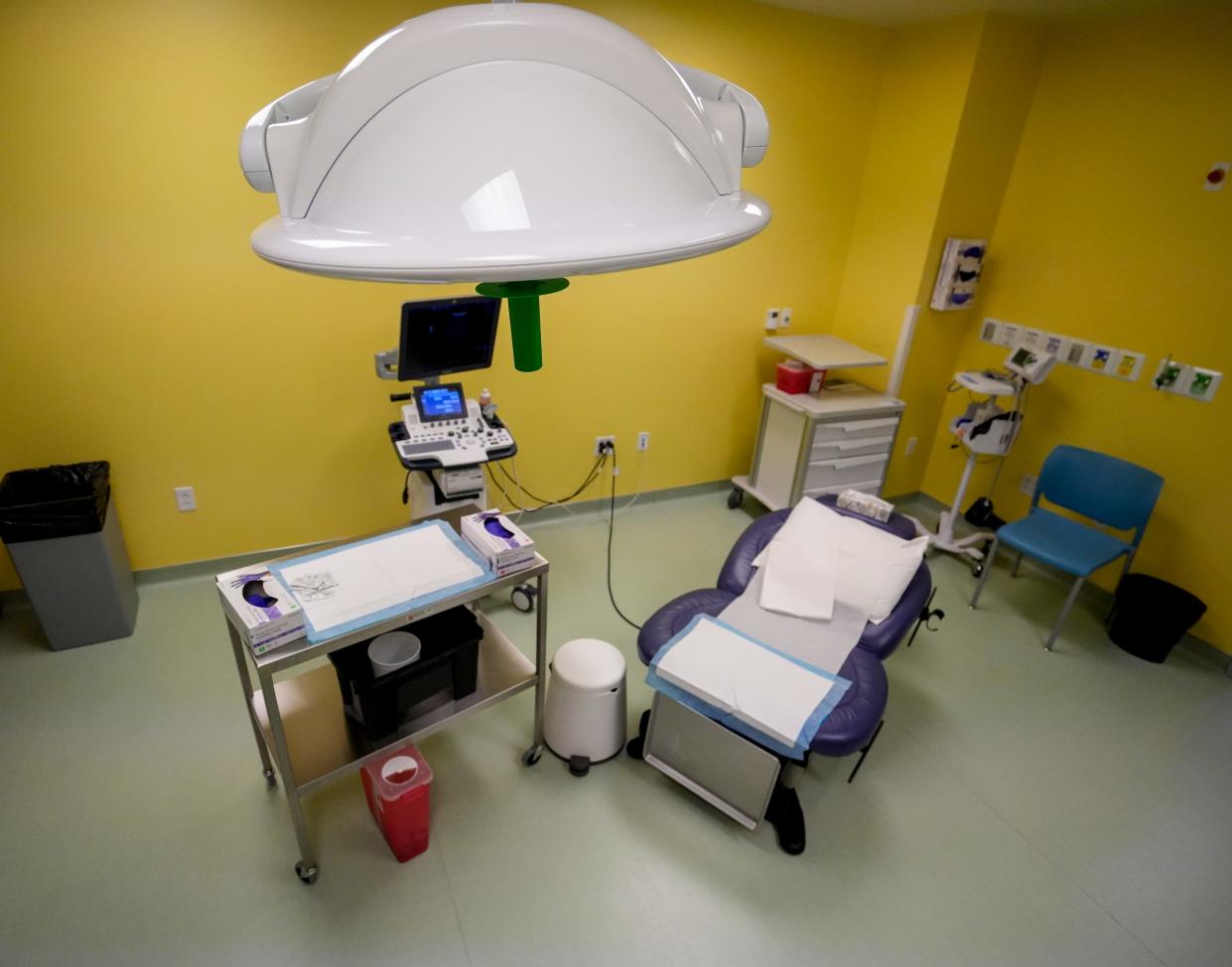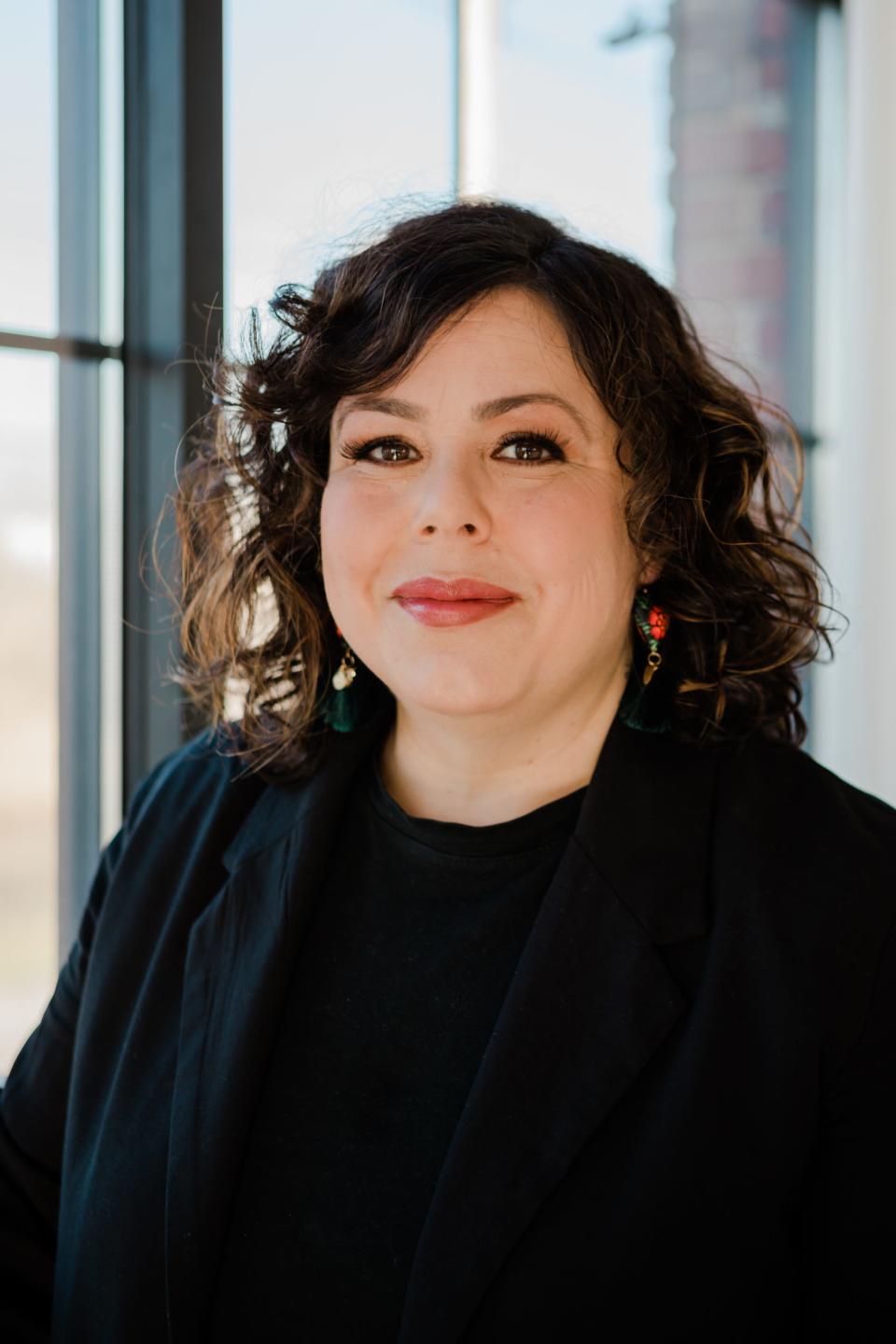Planned Parenthood's endgame: Get courts to affirm abortion right in Wisconsin Constitution

Planned Parenthood officials − a week into resuming abortion services in Wisconsin − are strategizing to secure longterm access to the medical procedure by affirming abortion rights in the Wisconsin Constitution.
"It is absolutely something we are interested in pursuing," Michelle Velasquez, Planned Parenthood of Wisconsin's director of legal advocacy and services, told the Milwaukee Journal Sentinel. "There are no laws in Wisconsin that proactively protect abortion. That means we are susceptible as a state to anti-abortion legislation or other adverse court decisions down the road."
There are three ways longterm access in Wisconsin could be obtained:
The Legislature could pass a law codifying the statutory right to an abortion. Planned Parenthood is not keen on this option because future legislatures could keep changing the laws.
A constitutional amendment can be approved through a ballot initiative approved by voters. That's a more time-intensive option requiring the Legislature to vote on the exact same language for a ballot initiative during two consecutive legislative sessions before going to the voters.
A lawsuit that argues the Wisconsin Constitution already protects abortion, and a state Supreme Court decision agreeing.
"A court decision could interpret Wisconsin's Constitution as protecting abortion," Velasquez said.

Velasquez said the lawsuit filed last year by Attorney General Josh Kaul — which Planned Parenthood is not a party to — does not get to the issue of constitutionality. The lawsuit argues a state abortion ban passed in 1849, which had gone back into effect when Roe v. Wade was overturned by the U.S. Supreme Court in June 2022, is unenforceable.
Dane County Circuit Court Judge Diane Schlipper, in her July denial of a motion to dismiss Kaul's lawsuit, said she does not see the 1849 law as applicable to consensual abortions. That led to Planned Parenthood resuming abortion services Monday.
Velasquez and others are also well aware that the shift in the state Supreme Court from a conservative majority to a liberal majority dramatically improves the possibility of a favorable ruling in a future lawsuit challenging the larger issue of constitutionality.
"We needed to know that the old law did not apply to abortions, and we have gotten that confirmation," Velasquez said. "But it doesn't change anything about the legal framework we are operating under."
"I would imagine there will be other cases and litigation moving forward, now that the legal landscape has changed, that asks the courts what Wisconsin's constitution means and what does it say about abortion," Velasquez said.
Wisconsin laws more restrictive that its neighbors
When Planned Parenthood began providing abortion services again, it did so with the same restrictions that were in place prior to the overturning of Roe v. Wade.
"If you looked at a map, we were always a state that was considered extremely restrictive," said Dr. Allie Linton, Planned Parenthood of Wisconsin's associate medical director.
For example, the right to an abortion is codified in Michigan's and Minnesota's constitutions, according to the Kaiser Family Foundation.
In Wisconsin — separate from the 1849 ban — laws requiring mandatory counseling, a mandatory ultrasound and a mandatory 24-hour waiting period prior to an abortion create too many barriers for too many people, Linton said.
Further, women seeking a medication abortion, which also was banned prior to last week, face restrictions in Wisconsin. In most states, the two medications necessary to end a pregnancy can be obtained through one telehealth appointment. Wisconsin women must meet face-to-face over a 24-hour period with the same doctor.
"We still have a long way to go in order to continue to increase access and to make sure all patients in the state can access an abortion as routine health care," Linton said.

More bills moving through Wisconsin Legislature
While abortion access advocates seek to codify a constitutional right, Republican lawmakers testified Tuesday on a set of bills related to the issue. In summaries, the Legislative Reference Bureau said the bills would consider unborn children as dependents to increase tax exemptions; fund grants for families seeking to adopt; further define abortion under state law; and prohibit public employees from engaging in abortion-related work within the scope of their government employment.
The bill adding specifications to the state's definition of abortion seeks "to provide that abortion does not include a physician's performance of a medical procedure or treatment designed or intended to prevent the death of a pregnant woman and not designed or intended to kill the unborn child."
Those exceptions would include an early induction or Cesarean birth performed due to medical emergency, as well as removal of a miscarriage or an ectopic, an embryonic or molar pregnancy — as long as the physician makes "reasonable medical efforts" to save both lives. Violations of the law (by someone other than the mother) would be increased to a Class E felony from a Class H felony — increasing the maximum sentence from six years to 15 years.
"Taken together, the bills demonstrate a clear commitment (to building) back the culture of life that I believe is slowly eroding," Sen. Romaine Quinn, R-Cameron, said during Tuesday's hearing.
Quinn told the Journal Sentinel on Thursday that he is glad to hear that Planned Parenthood does not think the state Constitution currently protects the right to an abortion.
"I think the Legislature is the best place to have this discussion, where we can be thoughtful, careful and open, and hopefully empathic to both sides," Quinn told the Journal Sentinel on Thursday. "I don't think that happens in a court of law in front of a couple of judges. I don't think that's where these decisions are supposed to be made."
Velasquez said there have always been two paths to restoring and protecting abortion access in Wisconsin. For the past 50 years, the legislative path has been used most, with Wisconsin lawmakers passing bills that restrict access.
"I think we have to remember that the anti-choice movement spent nearly 50 years working to overturn Roe v. Wade," Velasquez said. "This is absolutely a marathon and not a sprint."
Jessica Van Egeren is the Milwaukee Journal Sentinel's enterprise health care reporter. She can be reached at jvanegeren@gannett.com.
This article originally appeared on Milwaukee Journal Sentinel: Planned Parenthood wants to affirm abortion in Wisconsin Constitution

